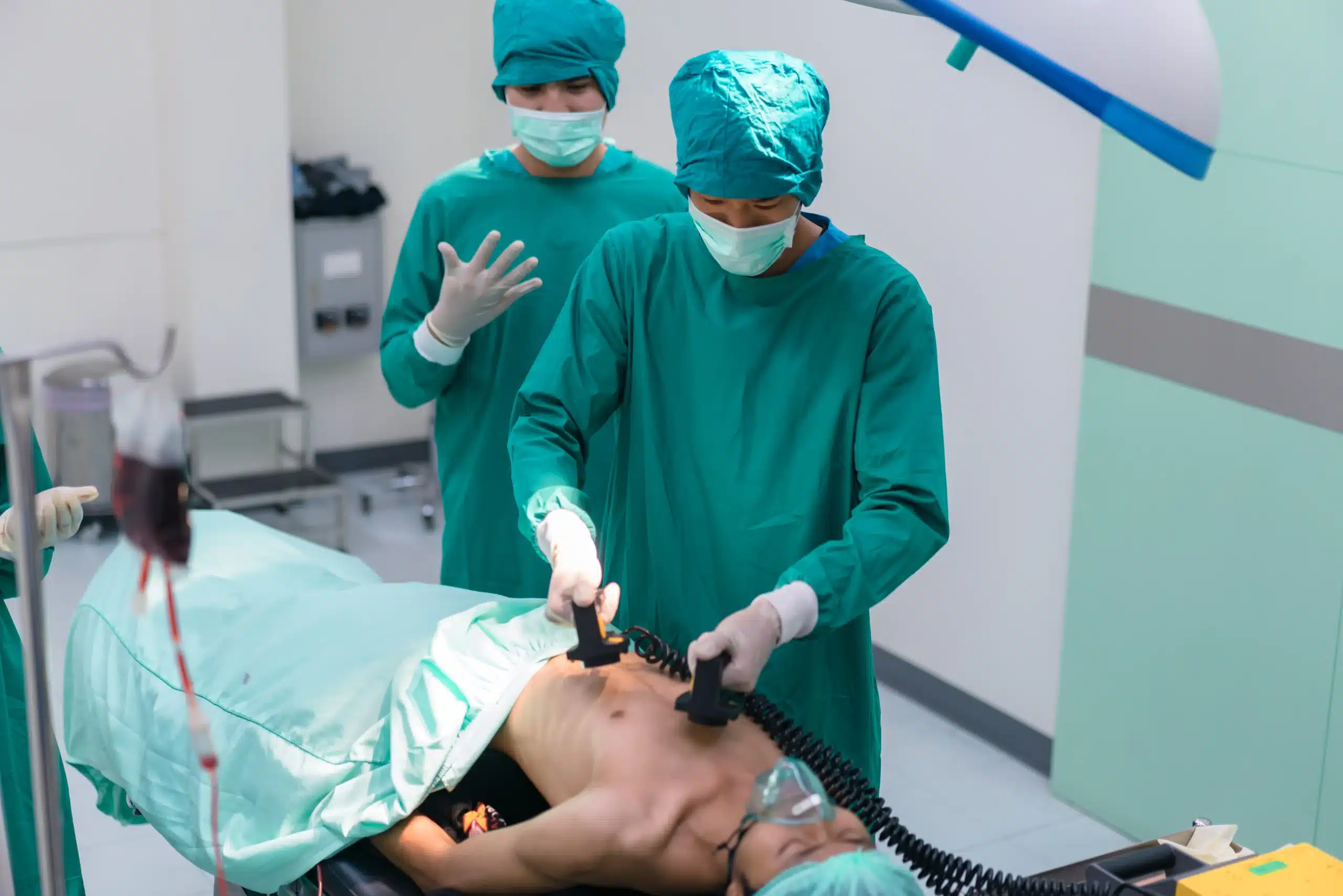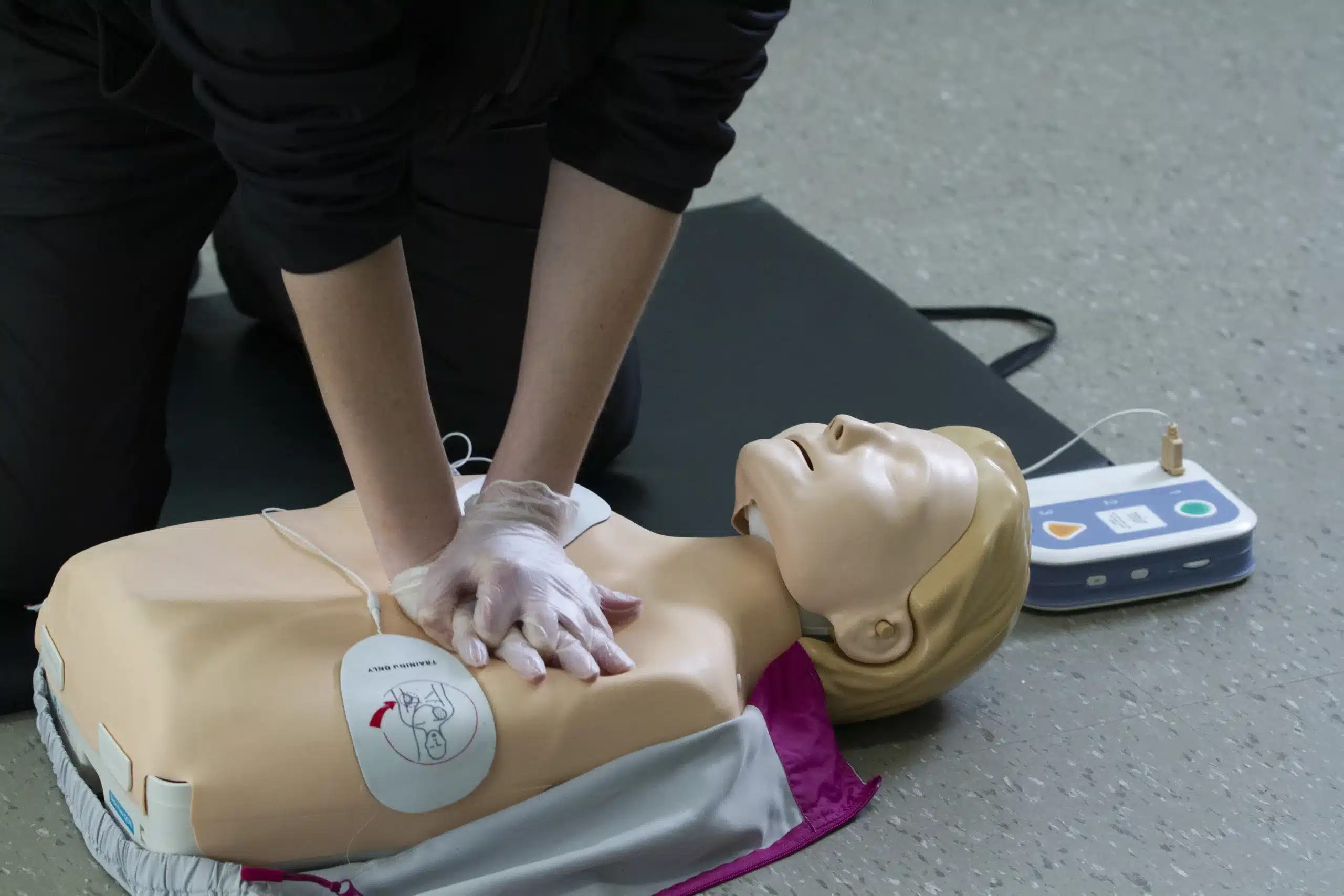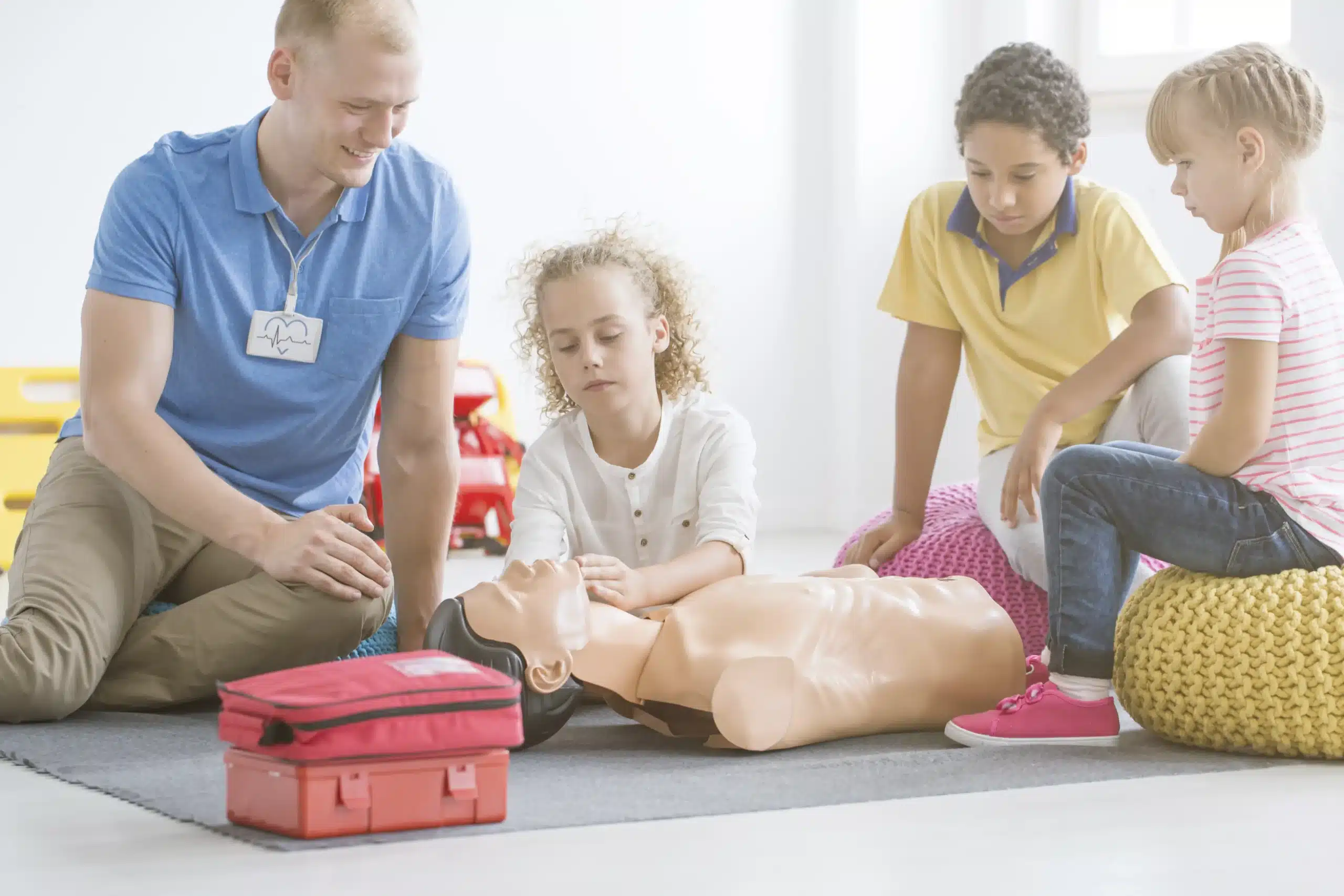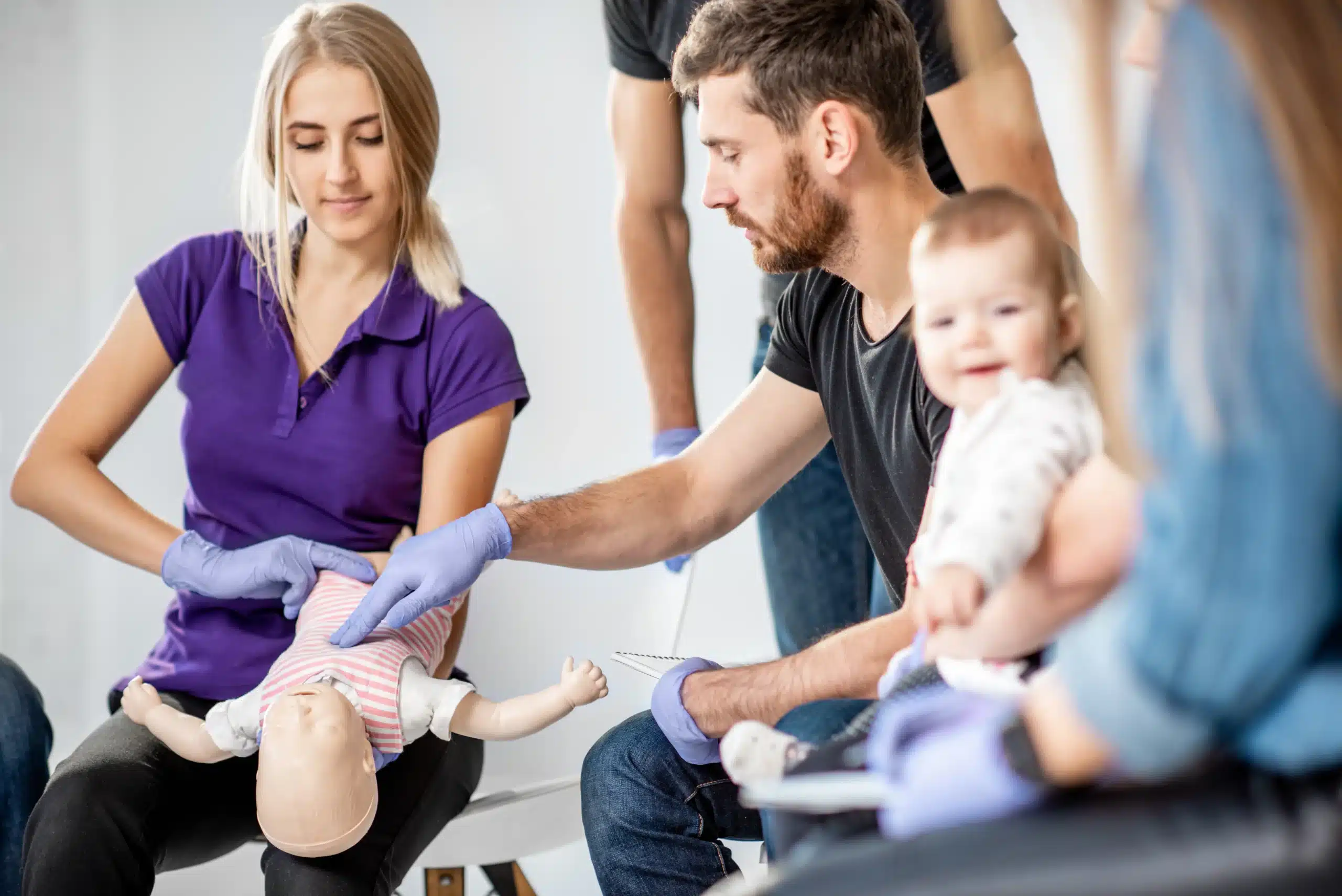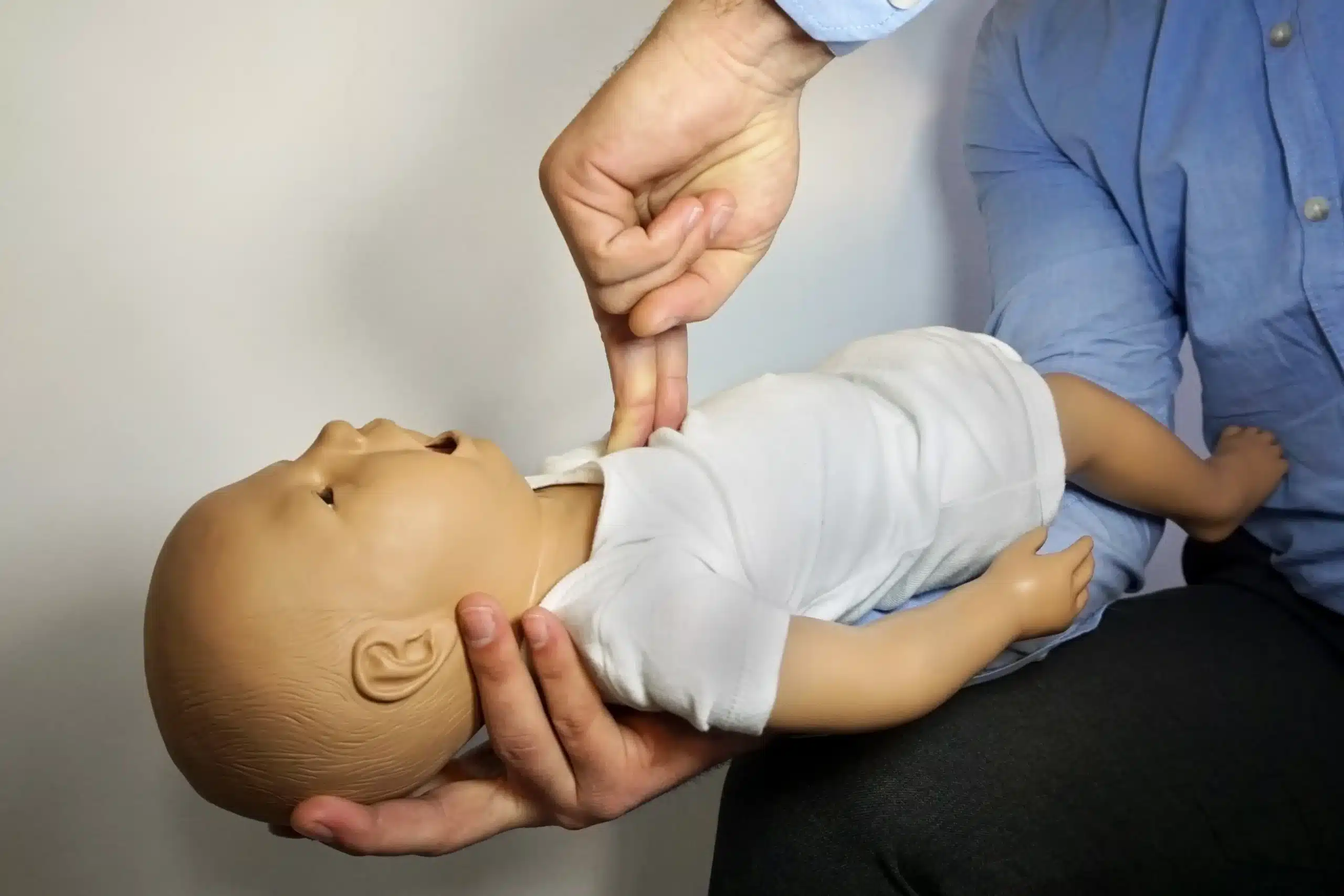Your CPR certification isn’t just a piece of paper; it’s a testament to your willingness to step up during critical moments. But like any important skill, CPR requires regular refreshing to ensure you’re prepared to act effectively. If you’re looking for information on CPR renewal in Dublin, this guide is for you. We’ll walk you through the process step by step, from understanding the requirements and choosing the right course to managing performance anxiety and maintaining your skills long term. We’ll also explore the various training options available in Dublin, including the convenient and affordable courses offered by San Ramon CPR Courses. Let’s ensure your life-saving skills are always sharp and ready to make a difference.
Key Takeaways
- Regular CPR renewal ensures you have the most current skills and knowledge to respond to emergencies. Find a convenient course format, whether in-person, blended, or online, that fits your learning style and schedule.
- Select a CPR course that aligns with your specific needs and professional requirements. Consider factors like the instructor’s experience, course content (including AED training), and reviews from past participants.
- Maintain your skills and confidence after renewal through regular practice and consider expanding your knowledge with advanced certifications. This ongoing commitment ensures you’re always prepared to provide effective assistance when needed.
What is CPR Renewal in Dublin?
CPR renewal in Dublin is the process of recertifying your CPR skills and knowledge before your current certification expires. Just like renewing a driver’s license, CPR certification involves completing a recognized training course and passing a skills test. This ensures you’re equipped to provide effective assistance during emergencies. San Ramon CPR Courses offers a variety of American Heart Association (AHA) certified courses, including CPR and First-Aid, to keep your skills sharp and your certification current. We serve the Dublin area, making it convenient for you to stay prepared.
Why Renew Your CPR Certification Regularly?
CPR certifications are typically valid for two years. Regular renewal is essential for several reasons. First, guidelines and best practices can change, and renewal courses incorporate these updates. Staying current ensures you’re providing the most effective care. Second, skills can fade over time. Regular practice through a renewal course reinforces your muscle memory and confidence in performing CPR. Aim to renew your certification within 30 days of its expiration to avoid retaking the entire course.
Common CPR Renewal Myths
One common misconception is that renewal is a lengthy, complex process. In reality, renewal courses are often shorter and more focused than initial certification courses. Another myth is that online-only renewal is sufficient. While online courses offer convenience for the cognitive portion, hands-on practice and in-person evaluation are crucial for mastering the physical skills of CPR. San Ramon CPR Courses offers a blend of online and in-person options to suit your learning style. Finally, some believe that basic CPR certification is enough. While foundational skills are essential, consider exploring advanced certifications like ACLS or PALS, especially if your profession or personal life requires a higher level of preparedness. We also offer RQI classes for healthcare professionals seeking specialized resuscitation training. Don’t let these myths prevent you from staying prepared.
Where to Renew Your CPR Certification
Finding the right place to renew your CPR certification is key to maintaining your lifesaving skills. Here are a few options to explore:
San Ramon CPR Courses
If you’re in the San Ramon, Dublin, or Danville area, San Ramon CPR Courses offers a convenient and affordable option for renewing your certification. They provide a range of American Heart Association (AHA) certified courses, including CPR, BLS, ACLS, PALS, and First Aid. Their commitment to affordability is backed by a low price guarantee, and they also offer discounts for group classes. Explore their website for more information on their CPR and First Aid certification courses. They also offer specialized training like RQI classes and EMSA Child Care Health and Safety training.
American Heart Association
The American Heart Association (AHA) sets the standard for CPR and emergency cardiovascular care. While they don’t directly offer courses, they authorize training centers like San Ramon CPR Courses to provide their curriculum. This ensures your training meets the latest guidelines and your certification is widely recognized. Finding an AHA-authorized training center guarantees you’re receiving high-quality instruction.
Red Cross
The Red Cross is another well-known provider of CPR and first aid training. They offer various course formats, including in-person, online, and blended learning. You can find information on their CPR classes and certification in your area through their website. Be sure to check whether the specific course you choose meets OSHA requirements if that’s necessary for your work.
Dublin Training Academy
For those located in Ireland, Dublin Training Academy offers Adult CPR & AED training. This course focuses on using an Automated External Defibrillator (AED) and performing CPR on adults. Visit their website for more information on their course offerings and scheduling.
St. John Ambulance Ireland
St. John Ambulance Ireland also provides CPR and first aid training, including recertification courses. They offer discounts for group bookings, making it a cost-effective option for workplaces or groups of friends. Explore their First Aid Response Recertification for details on pricing and course content.
CPR Renewal Costs & Value
CPR renewal doesn’t have to break the bank. Understanding associated costs and exploring available discounts can make the process more affordable. Let’s explore typical expenses and how to find the best value.
Average Certification Costs
CPR certification costs in Dublin vary depending on the provider and the type of course. Generally, providers like St. John Ambulance offer First Aid Response Recertification for €215 per person, covering CPR and first aid skills for various emergencies. Visit their website for details. The Dublin Training Academy offers Adult CPR & AED Training for €150 per person at their Parkwest location. See their course information for more. Contact the provider directly for the most up-to-date pricing.
Additional Fees
While the course fee is the primary expense, be mindful of potential additional fees. Some providers might charge extra for materials or certification cards, though many include these in the initial cost. Look for special offers; for example, the Dublin Training Academy sometimes offers free Manual Handling training alongside other bookings, adding value to your training. Check their website for current promotions.
Group Discounts
Renewing with a group? Explore group discounts. Many providers, including St. John Ambulance, offer reduced rates for group bookings. This can be a great way to save while ensuring everyone stays certified. Check their group discount policy for details and how to save. Even a small per-person discount adds up for larger groups.
Course Formats & Duration
Choosing the right CPR renewal course often depends on your learning style and schedule. Let’s explore the different formats available near San Ramon.
In-Person Classes
In-person classes offer hands-on training essential for mastering CPR techniques. You’ll work directly with a certified instructor, receive real-time feedback, and practice your skills in a simulated environment. This format is ideal for tactile learners who benefit from hands-on practice and direct interaction with instructors. San Ramon CPR Courses offers in-person BLS courses that meet American Heart Association standards, giving you the skills and confidence to respond effectively in emergencies.
Online & Blended Learning
If your schedule is tight or you prefer a more flexible approach, online and blended learning options might be a good fit. Many CPR certification courses offer blended learning, combining online modules with in-person skills sessions. This format allows you to learn the cognitive material at your own pace, then demonstrate your skills in a practical setting.
Typical Course Length
CPR renewal courses vary in length, typically ranging from two to four hours depending on the specific course content and format. This flexibility allows you to choose a course that accommodates your schedule and learning preferences. Check with your chosen provider, like San Ramon CPR Courses, for specific course durations. They offer a range of courses, including CPR and First Aid, to fit your needs.
CPR Renewal Requirements
CPR renewal ensures your skills are current so you can respond effectively in an emergency. This section clarifies the requirements for renewing your CPR certification in the Dublin area.
Required Documents
CPR renewal doesn’t usually involve much paperwork. The main requirement is proof of your current certification. Have your existing CPR card on hand, as you’ll need to present it when registering for a renewal course. Some providers, like San Ramon CPR Courses, may offer digital records, which simplifies this process.
Certification Status
Your CPR certification must be current to be eligible for renewal. Expired certifications often require a full course instead of a refresher. Check your card’s expiration date and plan accordingly. If you’re unsure about your certification status, contact your certifying organization or a local provider like Safety Training Seminars for guidance. They can help determine the best path forward.
Registration
Registering for CPR renewal is usually straightforward. Many providers, including Dublin CPR Classes, offer online registration, allowing you to select a convenient class time and date. You’ll provide basic information during registration, such as your name, contact details, and previous certification information. Some training centers may also require payment during registration.
What to Expect During Renewal
Renewing your CPR certification is a straightforward process designed to refresh your life-saving skills. Here’s what you can expect:
Course Content & Skills
Renewal courses cover core CPR principles and techniques, ensuring you’re up-to-date with the latest guidelines from organizations like the American Heart Association. You’ll review essential topics such as recognizing the signs of a cardiac arrest, performing chest compressions, and delivering rescue breaths. The curriculum also typically includes training on using an automated external defibrillator (AED). This refresher ensures you’re confident and competent in providing immediate care during emergencies.
Hands-On Practice
CPR renewal emphasizes hands-on learning. You’ll have plenty of opportunities to practice your skills on manikins, allowing you to refine your technique and build muscle memory. Instructors provide guidance and feedback, helping you perfect your compressions, breath delivery, and overall CPR performance. This practical training simulates real-life scenarios, preparing you to respond effectively under pressure. Dublin CPR classes often follow this learn-by-doing approach.
Assessment
Most renewal courses include a skills assessment to evaluate your proficiency. This typically involves demonstrating your CPR technique on a manikin while the instructor observes. The assessment ensures you meet the required standards for CPR certification. You can find more information on the CPR certification renewal process online. Upon successful completion, you’ll receive your updated certification card, valid for another two years.
Choose the Right CPR Course
Finding the right CPR course involves understanding your needs and doing a little research. It’s a bit like choosing the right pair of shoes—you need the right fit for your specific activity and comfort level.
Factors to Consider
First, make sure your chosen CPR training provider is recognized by a reputable organization like the American Heart Association. This ensures your training aligns with current industry standards and best practices. Think of it as checking the label to make sure they’re authentic and well-made. You’ll also want to consider the instructor’s expertise. Experienced instructors can offer valuable insights and create a more engaging learning environment. Finally, double-check what’s included in the course content, such as AED training, and confirm the certification’s validity period. San Ramon CPR Courses offers courses that meet these criteria.
Match Courses to Your Needs
Beyond the basics, think about which course best suits your situation. Do you need a basic CPR and First Aid certification or a more advanced certification like BLS, ACLS, or PALS? Consider your professional requirements—do you need a specific certification for your job? Or are you taking the course for personal knowledge? San Ramon CPR courses offers a range of options to meet different needs.
Course format matters too. Do you prefer traditional in-person classes, or would the flexibility of online or blended learning work better for your schedule? Blended learning often combines online modules with in-person skills sessions, offering a convenient way to fit training into a busy life. And, of course, cost is a factor. Course fees can vary based on the certification level, format, and provider. Check if group discounts are available if you’re learning with friends, family, or coworkers. San Ramon CPR Courses offers discounts for groups. Understanding these variables will help you choose a course that aligns with both your learning style and your budget.
Overcome CPR Renewal Challenges
Let’s be honest, renewing your CPR certification can feel like another task on an already overflowing to-do list. But staying current with your CPR skills is crucial, especially if you work in healthcare, childcare, or any field where you might need to respond to emergencies. This section addresses common renewal hurdles and offers practical solutions to make the process smoother.
Time Constraints & Flexibility
Juggling work, family, and other commitments makes finding time for CPR renewal tricky. Luckily, providers like San Ramon CPR Courses understand these constraints. With classes offered throughout the day, from 8 am to 10 pm, you can find a time that fits your schedule. Whether you’re an early bird or a night owl, there’s an option for you. Plus, with various course formats available, including in-person, online, and blended learning, you can choose the learning style that best suits your needs and availability.
Retain Your Skills
It’s one thing to renew your certification, but quite another to feel confident using your skills in a real emergency. Regularly practicing your CPR skills is key. Think of it like any other skill—the more you use it, the more comfortable you become. Hands-on practice and skills assessments are essential parts of the renewal process. These assessments not only fulfill the renewal requirements but also help you build muscle memory and confidence in your abilities.
Manage Performance Anxiety
Even with practice, the thought of performing CPR in a high-pressure situation can be nerve-wracking. Many people experience performance anxiety around CPR, and that’s perfectly normal. Providers like San Ramon CPR Courses often create a supportive learning environment to help students feel more at ease. Active participation and open feedback during classes can help you solidify your knowledge and reduce anxiety. Remember, the goal is to be prepared, and a good instructor will help you get there comfortably. Addressing the psychological aspects of training and offering positive reinforcement can make a significant difference in building your confidence.
Course Quality & Feedback
Choosing the right CPR renewal course is a big decision. You want to feel confident in your skills and know you’re receiving high-quality instruction. Here’s what you should know about course quality and finding valuable feedback.
Past Participant Reviews
Reading reviews from past participants gives you insight into the learning experience. Look for comments mentioning clear instruction, helpful feedback, and hands-on practice opportunities. For example, the Irish Heart Association notes that its Heartsaver CPR AED course uses a practice-while-watching format, with instructors providing feedback and guidance to improve CPR technique. This feedback is invaluable for building confidence and mastering essential skills. Similarly, Lifeline Ambulance Service emphasizes the importance of both theory and practical learning in its Cardiac First Response Community course, encouraging student participation and feedback to ensure a strong grasp of practical skills.
Instructor Expertise & Teaching
Your instructor’s expertise plays a crucial role in your training quality. Look for courses taught by certified instructors with extensive experience. A good instructor will not only teach the material but also create a supportive learning environment where you feel comfortable asking questions and practicing your skills. Dublin CPR Classes, for instance, offers comprehensive Basic Life Support (BLS) training certified by the American Heart Association, catering to various individuals. They adhere to the American Heart Association guidelines for BLS, ensuring participants receive current, relevant training. This commitment to established guidelines demonstrates a focus on quality instruction and up-to-date practices.
After Renewal: Next Steps
So, you’ve renewed your CPR certification—great job! But your journey doesn’t end there. Staying current and confident in your skills is an ongoing process. Here’s what you should do after renewing your certification:
Get Your Updated Certification
CPR certifications are typically valid for two years. Once you’ve completed your renewal course, make sure you receive your updated certification card. This acts as proof of your current qualifications and is often required by employers and organizations. Keep it in a safe place and make a note of the expiration date so you can plan for your next renewal. At San Ramon CPR Courses, we issue certification cards upon completion of our courses, so you’ll leave ready to respond to emergencies.
Maintain Your Skills
CPR skills can fade over time. Regular practice is key to maintaining the muscle memory and quick thinking needed in real-life situations. Even if your certification isn’t expiring soon, regularly review your CPR skills. Use online resources or practice with friends and family to stay sharp and ready to act. Consider attending refresher courses or workshops to reinforce your knowledge and address any updates to CPR guidelines.
Continuing Education
Renewing your CPR certification is a fantastic first step, but consider expanding your skillset. Many training providers offer advanced courses and certifications that can complement your CPR training. For example, you might consider taking advanced first-aid training or learning how to use an automated external defibrillator (AED). Staying updated with guidelines, practicing regularly, and understanding changes in protocols are essential for successful BLS renewal. At San Ramon CPR Courses, we offer a range of courses, including BLS, ACLS, and PALS, to help you build a comprehensive set of life-saving skills. We also offer RQI classes to help healthcare professionals maintain their resuscitation skills. Check out our website for more information on our course offerings and our low price guarantee.
Related Articles
- Online CPR Classes Dublin: Your Complete Guide – San Ramon CPR Classes
- CPR & First-Aid Training in Dublin: A Complete Guide – San Ramon CPR Classes
- ACLS Renewal Dublin: Your Simple Guide – San Ramon CPR Classes
- CPR Myths Debunked for Better Life-Saving Skills
- San Ramon CPR Certification: Your Guide – San Ramon CPR Classes
Frequently Asked Questions
How often do I need to renew my CPR certification? CPR certifications are typically valid for two years. It’s best to renew within 30 days of the expiration date to avoid retaking the full course. Keeping your certification current ensures you’re up-to-date on the latest guidelines and best practices.
What’s the difference between CPR renewal and initial certification? Renewal courses are generally shorter and focus on refreshing existing skills and knowledge, while initial certification courses cover the fundamentals in more detail. If your certification has expired, you’ll likely need to take the full certification course again.
Are online-only CPR renewal courses acceptable? While online courses are convenient for reviewing the theoretical aspects of CPR, hands-on practice and in-person evaluation are essential for mastering the physical skills. Look for blended learning options that combine online modules with in-person skills sessions.
How much does CPR renewal cost, and are there any discounts available? Costs vary depending on the provider and course type. Many providers offer discounts for group bookings, so check if that applies to you. It’s always a good idea to compare prices and inquire about any additional fees for materials or certification cards.
What if I’m nervous about performing CPR in a real emergency? It’s completely normal to feel some anxiety about using your CPR skills under pressure. Choose a training provider that emphasizes hands-on practice and creates a supportive learning environment. Regularly reviewing your skills after certification can also help build confidence.

